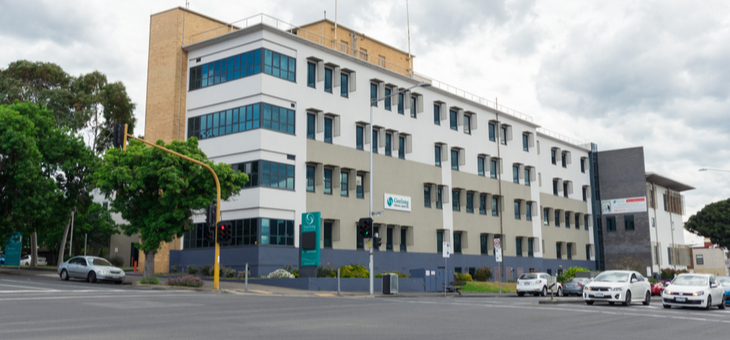As more people drop their private health insurance and elective surgery wait times at public hospitals blow out beyond 109 days, a major row is threatening the health insurance of more than one millions Australians.
Talks between six members of the Australian Health Services Alliance (AHSA) and Healthscope – a for-profit Australian company that operates private hospitals, medical centres and international pathology services – have broken down. The talks for a new three-year contract started in November last year.
The result is that more than one million Australians will be unable to access treatment at 42 Healthscope private hospitals after 8 June without incurring out-of-pocket costs.
Emergency hospital admissions will continue until 7 September.
The AHSA is a non-profit that negotiates agreements with private hospitals on behalf of 27 small to medium-sized health funds. It is the third largest health insurance buying group after Bupa and Medibank, according to the Australian Financial Review.
The six affected AHSA members are: Australian Unity, Teachers Health Fund, CUA Health, Reserve Bank Health Society, CBHS Corporate Health and CBHS Health Fund.
Healthscope said an agreement could not be reached on the rate offered to it by the health funds.
“The decision not to recontract has been made with regard to the future commercial sustainability of our business as we must be appropriately reimbursed for the work our people do every day, and at a rate that allows us to be able to invest in our facilities and equipment so we can continue to deliver world-class care for patients,” a spokesperson said.
“This was not a decision we took lightly and is not our preferred option, but we are committed to securing arrangements with private health insurers that maintain the financial viability of private hospitals.”
Teachers Health Fund, a not-for-profit and member-owned insurer that represents more than 160,000 teachers and their families, says Healthscope’s decision to terminate the agreement is “irresponsible and unconscionable”. It claims Healthscope was being unreasonable by charging “additional fees” for industry-minimum standards that would have resulted in an unacceptable and unfair increase in costs for its members.
“This opportunistic and exploitative behaviour demonstrates the lack of competition faced by Healthscope and its ability to make take-it-or-leave-it offers to health funds,” Teachers Health Fund chief executive Brad Joyce said on Monday.
“It unfairly targets teachers who are already facing personal and professional challenges during COVID-19.
“Considering the current climate, supporting the physical and mental health needs of our teachers should not be used as a bargaining tool.”
Healthscope hospitals affected
Australian Capital Territory
National Capital Private Hospital
New South Wales
Campbelltown Private Hospital
Hunter Valley Private Hospital
Lady Davidson Private Hospital
Mosman Private Hospital
Nepean Private Hospital
Newcastle Private Hospital
Northern Beaches Hospital
Norwest Private Hospital
Prince of Wales Private Hospital
Sydney Southwest Private Hospital
The Hills Private Hospital
The Sydney Clinic
Tweed Day Surgery
Northern Territory
Darwin Private Hospital
Queensland
Brisbane Private Hospital
Gold Coast Private Hospital
Pacific Private Hospital
Peninsula Private Hospital
Pine Rivers Private Hospital
Sunnybank Private Hospital
South Australia
Ashford Hospital
Flinders Private Hospital
Griffith Rehabilitation Hospital
Parkwynd Private Hospital
The Memorial Hospital
Tasmania
Hobart Private Hospital
St Helen’s Private Hospital
Victoria
Bellbird Private Hospital
Dorset Rehabilitation Centre
Frankston Private Hospital
Holmesglen Private Hospital
John Fawkner Private Hospital
La Trobe Private Hospital
Knox Private Hospital
Melbourne Private Hospital
North Eastern Rehabilitation Centre
Northpark Private Hospital
Ringwood Private Hospital
The Geelong Clinic
The Melbourne Clinic
The Victoria Clinic
The Victorian Rehabilitation Centre
Western Australia
Mount Hospital
About 44 per cent of Australians have private hospital cover, according to the latest Australian Prudential Regulation Authority (APRA) data – a drop of 0.2 percentage points in the quarter compared to September 2019. The figure was pre-coronavirus.
Does this breakdown affect your private health insurance? Are you fearful that such a standoff will spread to other networks?
If you enjoy our content, don’t keep it to yourself. Share our free eNews with your friends and encourage them to sign up.
Related articles:
Secret substances reduce dementia risk
Coming winter fuels COVID concerns
Vitamin link to virus death rate

